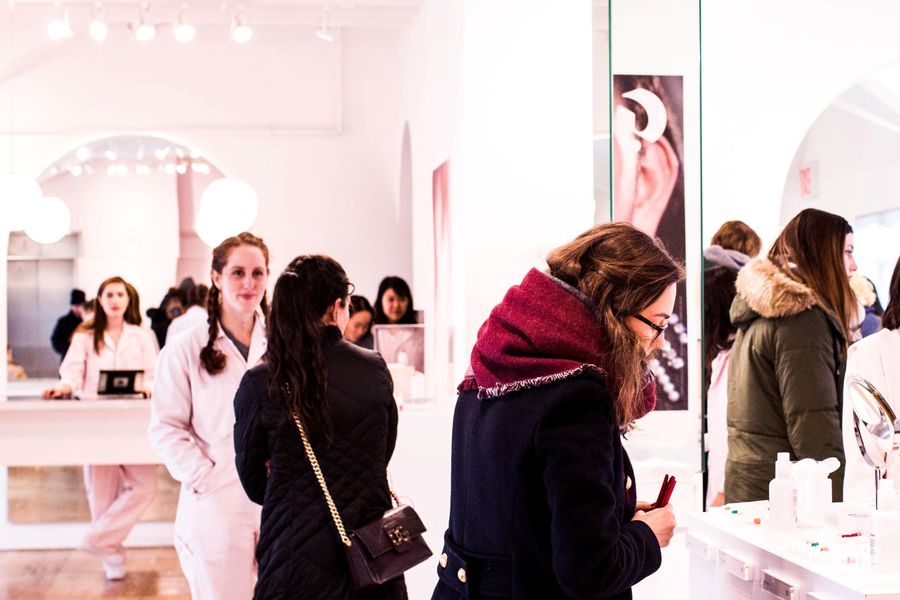What is experiential retail and how to benefit from it?

In an attempt to rekindle physical space, brands both digital and physical are coming up with entertaining concepts that ignite human senses and emotions.
One thing is common amongst them all — they are bold. Now is the time for bold ideas, and people want them.
What is experiential retail exactly, and how do up-and-coming retail business benefit from it? Let's find out.
Cate Trotter, Head of Trends at Insider Trends, defines experiential retail as non-mission-based shopping.
It offers an experience and gives shoppers reason to come and spend time with the brand. An immediate sale is not in focus. Instead, prospects immerse themselves into the owner's vision, get a feel of the company's values, and connect with the brand emotionally. Once the event is over, a successful, memorable experience should develop the relationship between customer and brand, that ultimately leads them to a purchase.
By employing physical space, digital medium, and an experiential approach, businesses begin to guide customers through the sales funnel using emotion, which makes them more likely to become a loyal customer than an occasional buyer.
From hyperphysical stores to digital enhancements
So how do you create a truly exceptional retail experience for people dulled by stimuli streaming from everywhere in today's digitalized world?
You go hyperphysical.
Taking experiential retail to the next level with compelling imagery, touch, sound, eventually smell and taste — hyperphysical retail strives to reach through all the human senses. When a buyer explores a brand by emotion, as opposed to traditional ways of shopping, a special sentiment forms, creating a unique connection to the brand.
One brand known for creating such enriching spaces is Jacquemus, with its pop-up experiential shops Le Bleu, open now in London.
Inspired by Simon Porte Jacquemus' own bathroom, Le Bleu shops are daring and emotionally intense. They put you in an environment that feels more like a modern art showpiece rather than a retail store.
The jewel in the crown is a themed vending machine, where visitors can buy Jacquemus bags 24/7 at their own convenience without any interactions from staff. This completely new interaction with the brand enhances the memorability of the experience.
The added bonus: Events like this engage people to take photos and make videos. More than likely this content is uploaded to social media which further spreads the word of the brand.
A digitally enhanced approach to experiential retail is showcased by UNIQLO's Harajuku Flagship in Tokyo. This store has 240 interactive touch screens installed in the wall that create a combined physical and digital shopping experience.
UNIQLO developed an app for the touchscreens which gives users suggestions on how to coordinate outfits, allows them to browse catalogs and helps them to locate clothing items in the store. A concept that bridges the gap between digital and physical, and encourages shoppers to break out from the norm shopping routine.
Not only do the touchscreens act as an experiential tool for UNIQLO, they also produce data on customers’ preferences, ultimately helping a brand determine what products work best. Enhancing brand experience and improving sales forecasts at the same time - a win-win.
So what about smaller businesses?
Experiential retail is not only for big name brands. Medium and small size businesses should also experiment to see how it works for them. The ideals behind experiential retail are not focused on immediate sales, they are about the bigger picture. Returning customers are more valuable than one time buyers, so why not nurture that relationship?
Think out of the box, how can you put a twist on the everyday to create a memorable experience? It does not need to be expensive, and you can play on what your business already offers. Own a local store? Try collaborating with other local businesses and experiment with shop-in-shop concepts. Sell flowers or jewelry? Host a creative workshop. The goal is to create a meaningful interaction with a customer that makes them come back for more.